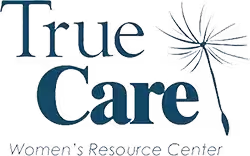Abortion has been legal in the United States for nearly 45 years, since the Supreme Court decision of Roe vs. Wade in January 1973. There are generations of Americans who have never known a world without legalized abortion. The Guttmacher Institute, a research organization, cites there are approximately one million abortions performed annually in the United States. Not all states mandate abortion reporting, including California, therefore, there actually may be many more abortions done in America.
A pregnant woman has two choices regarding her pregnancy: (1) carry to term or (2) abort. If she decides to carry to term, then she has another decision to make: parent or make an adoption plan. If she chooses to abort, she will have a procedure based on how far along she is. Therefore, she should seek accurate education on the types of abortion procedures to insure she is well informed about those methods before making her decision.
What to Know Before Having an Abortion
- Am I really pregnant? Although home pregnancy tests can be very accurate, sometimes they are inconclusive or difficult to read. Although rare, women occasionally have a false positive or false negative on a urine pregnancy test. True Care’s nurses provide a medical grade urine pregnancy test and a written verification of pregnancy for a woman to take with her as proof of her positive test.
- Do I have a viable pregnancy? A positive pregnancy test doesn’t necessarily mean a woman’s pregnancy is viable or will continue. About 25 percent of pregnancies end on their own before seven weeks due to miscarriage. Ultrasound can determine if the pregnancy is viable (unborn in the uterus with a heartbeat). If the pregnancy is not viable, a woman may be having a miscarriage or an ectopic pregnancy (baby is not in the uterus) which can be life threatening. True Care’s medical staff offer free ultrasounds to our patients with positive pregnancy tests. Our nurses have seen ectopic pregnancies and been able to refer women to the emergency room in time to prevent the ectopic pregnancy from rupturing. A ruptured ectopic is a life threatening emergency. If a woman were to have an abortion with an unknown ectopic pregnancy, she may think the pain she is feeling is normal after her abortion and not seek help when her life depends on it. Always have an ultrasound to confirm viability prior to having an abortion. A woman with a pregnancy complication needs to be seen right away by a local physician to manage her care.
- How Far Along am I? Sometimes a woman isn’t certain how far along she is. Maybe she can’t remember when she had her last period or she has irregular menstrual cycles. Finding out how far along you are through ultrasound can help you know what abortion procedure you will need if you decide to terminate your pregnancy. It may also help you know who the father is and when your due date is. Although ultrasound scans may be performed at the abortion clinic that will cost money. Visiting a medical pregnancy resource center like True Care will cost you zero dollars. Even the ultrasound scan is free of charge.
- What are my options? True Care provides factual education on all pregnancy options, including abortion. The brochures we give patients are relevant, accurate, and educational and will help you make an informed decision. Our registered nurses (all licensed in the state of Wyoming) can help you find answers to your medical questions, including questions about abortion.
- Do I have an STD (Sexually Transmitted Disease)? Having an STD like chlamydia or gonorrhea can have negative consequences on your future fertility if the infection progresses into pelvic inflammatory disease. Abortion can greatly increase your risk for pelvic inflammatory disease. It is important to get tested and treated if positive before getting an abortion (or giving birth). True Care provides STD testing for chlamydia and gonorrhea, two of the most common types of STDs in Natrona County; this is done by our medical personnel, again at no charge to the patient.
What About After an Abortion?
Although some women don’t seem to experience any long term effects from abortion, many women do. Abortion is a medical or surgical procedure that can have physical side effects, including excess bleeding and infection. You may experience some or all of these common effects after an abortion: pain and/or cramping, bleeding with some small clots, and nausea and/or vomiting.
If you decide to have an abortion, be sure to take good care of yourself, including rest, and be watchful for any complications. A list of these is found here: https://www.healthline.com/health/after-abortion#side-effects-and-complications4
Some women experience psychological/emotional effects such as depression, anxiety, suicide, anger, alcohol and drug abuse, and eating disorders. These may not materialize for several years after the abortion procedure. Some women find they begin to struggle emotionally around the due date when their baby would have been born. Be sure to seek counseling if you have any concerns or emotional effects from your abortion.
If you (or someone you know) think you might be pregnant, you owe it to yourself to find out the answers to the above questions. True Care doesn’t profit from the decision you make regarding your pregnancy. To set up a free, confidential appointment, call or text 307-215-9684.
If you have recently started a medical abortion (taken the first abortion pill but not the second pill) and regret that decision, True Care may be able to help through a treatment protocol known as Abortion Pill Reversal. Call or text us at 307-215-9684 to make an appointment.
